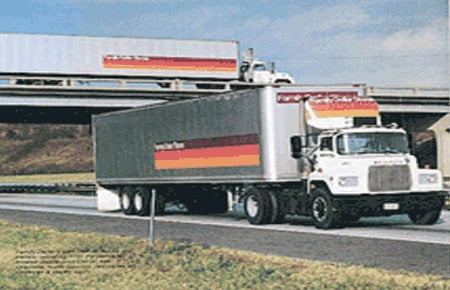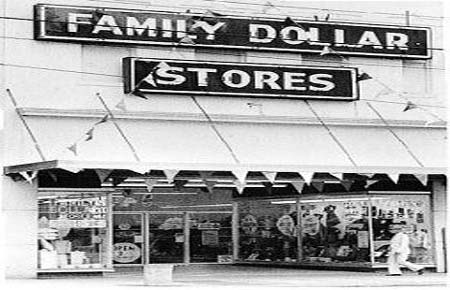Fact Friday 279 - The Family Dollar Story
Happy Friday!
In 1958, a 21-year-old entrepreneur with an interest in merchandising became intrigued with the idea of operating a low-overhead, self-service retail store. Leon Levine believed he could offer his customers a variety of high-quality, good value merchandise for under $2. Because he had grown up in his family’s retail store in Rockingham, NC, he understood value, quality and customer satisfaction.
On November 19, 1959, Levine opened the first Family Dollar store on Central Avenue in Charlotte, North Carolina, and was on his way to becoming a retailing legend. Right from the start, he had a well-developed philosophy of what Family Dollar would be and how it would operate, a philosophy from which he and his management team have never strayed. The concept is a simple one, “the customers are the boss, and you need to keep them happy.”
Levine created and implemented a general floorplan that allowed shoppers to easily find their favorite products in any Family Dollar store. With the stores uniformly laid out and stocked, store managers could focus on providing good customer service. This concept for a self-serve, cash-and-carry neighborhood discount store proved so successful, that today, Family Dollar is a chain with more than 8,000 stores from Maine to California (46 states) with 60,000 employees, and over 15,000 locations with the combined total of Family Dollar and Dollar Tree stores. Levine went on to become one of Charlotte’s and the Carolinas’ biggest philanthropists through his foundation, the Leon Levine Foundation.
1959-1970
After the first store opened in November 1959 in Charlotte, Family Dollar’s expansion into southern states took off throughout the 1960s. By the end of the decade, Family Dollar operated 27 stores in four states, with annual sales of more than $5 million.

1970s
In 1970, Family Dollar went public, offering common stock at $14.50 a share. Just a year later, Family Dollar opened its 100th store. Within three years, Family Dollar’s expansion skyrocketed, and the company opened its 200th store. It also opened its first distribution center in Matthews, N.C. During the decade, annual sales exceeded $100 million and in 1979, Family Dollar began trading on the New York Stock Exchange.

Family Dollar Store, 1973. MS0121 Mary Boyer collection of historical postcards and papers. UNC Charlotte.

1980s-1990s
In 1982, Family Dollar opened its 500th store. Through the decade, store expansion accelerated, and Family Dollar started to gain popularity as a major regional discount store chain. By 1989, Family Dollar had over 1,500 stores in operation. Family Dollar opened a second distribution center in West Memphis, Arkansas, and by 1996, Family Dollar was operating over 2,500 stores. At the end of the 1990s, Family Dollar saw annual sales of over $1 billion.

2000s
During the new millennium, Family Dollar became a Fortune 500 company. Seven years after Family Dollar was added to the S&P 500 index in 2001, company stock finished first among the index. Sales rocketed to $5 billion annually throughout the decade, and Family Dollar opened its 5,000th store in Jacksonville, Florida.
November 2009
In 2009, the company celebrated its 50th anniversary.

2010s
During the 2010s, Family Dollar officially merged with Dollar Tree, together becoming one of the largest small-format retailers in the United States. The merger was announced in 2014, and made official the next year. At this point, Family Dollar operated well over 8,000 stores, and our 10th distribution center opened in Ashley, Indiana.
Dollar stores, like Family Dollar and Dollar General, do however, face criticism from activist and advocacy groups like the Institute for Local Self Reliance for their impact on locally owned businesses and the communities they support.
https://ilsr.org/dollar-stores-factsheet/
https://ilsr.org/dollar-stores-target-cities-towns-one-fights-back/
https://www.propublica.org/article/how-dollar-stores-became-magnets-for-crime-and-killing
Until next week!
Chris.
Email me at chris@704shop.com if you have interesting Charlotte facts you’d like to share or just to provide feedback!
Information taken from:
FamilyDollar.com
UNC Charlotte Special Collections on Instagram: @unccspeccoll
“We have to do with the past only as we can make it useful to the present and the future.” – Frederick Douglass





